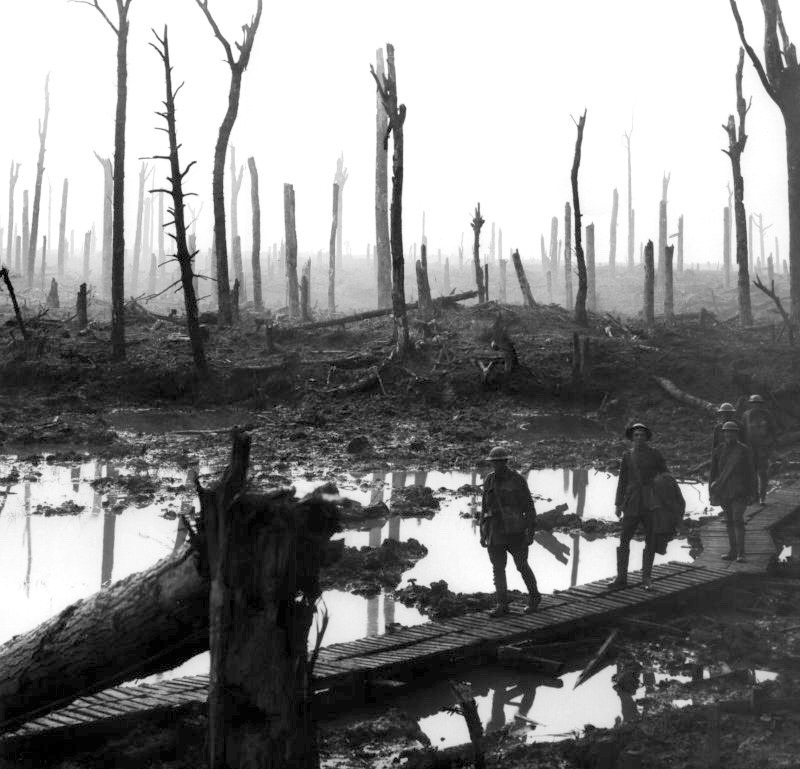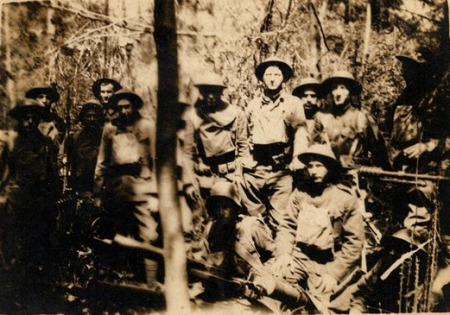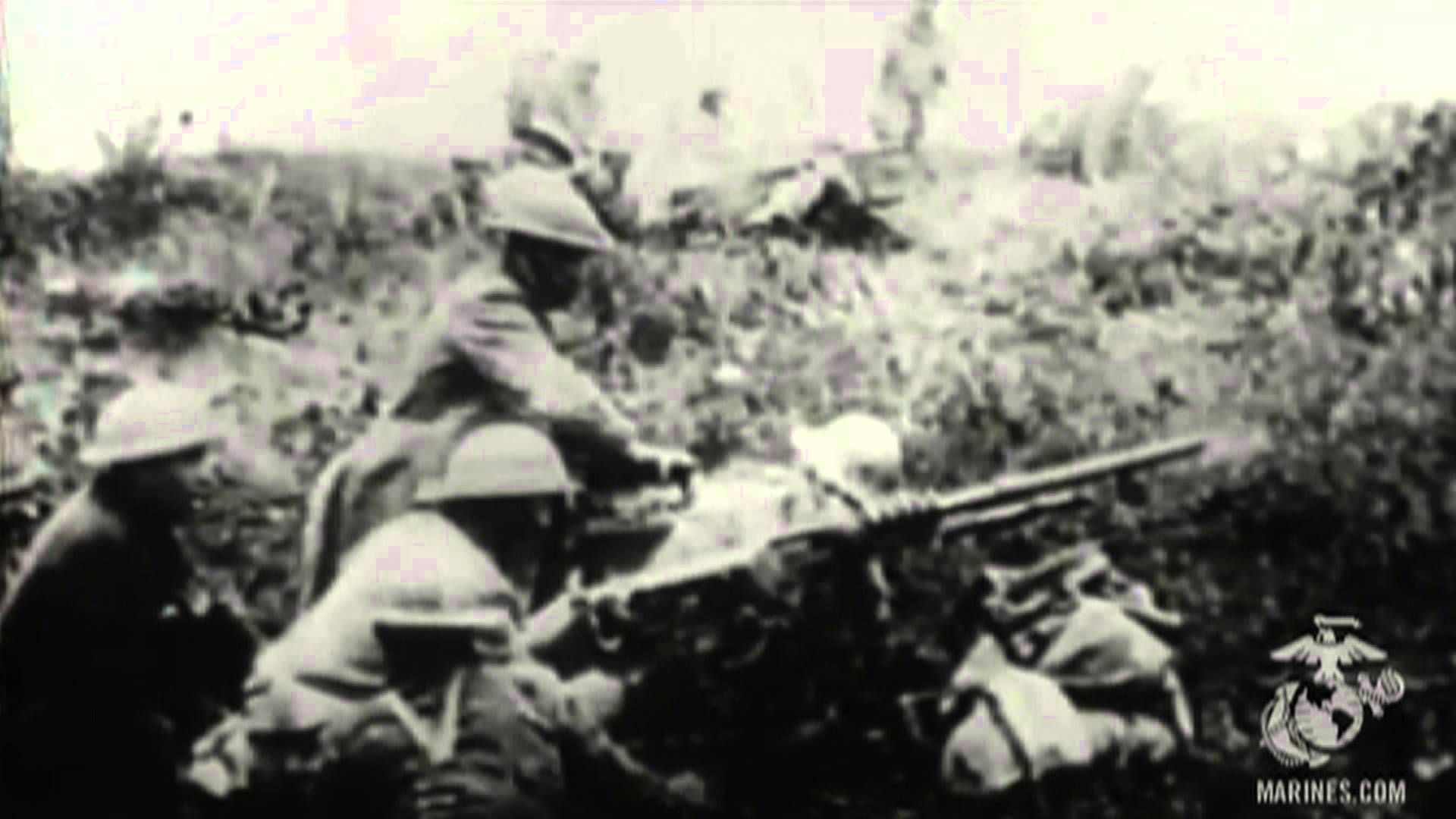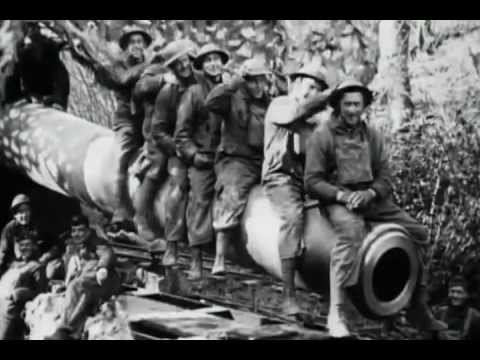Despite Massive Allied Losses, German March to Paris Halted.
Influenza Now a Factor
Special to The Great War Project
(12 June) If there are any questions about the American war-fighting skills and commitment, they are dispelled in these days on the Western Front a century ago.
In the first week of June, the Germans attack the Americans at a forest known as Belleau Wood.

Mud and dead trees at Belleau Wood.
Belleau Wood turns into one of the most storied American battles of the First World War. “As the American Marine Brigade was ordered into action,” reports historian Martin Gilbert, “A sergeant called out, ‘Come on you sons’ a-bitches. Do you want to live forever?’”
In the first day of the Belleau Wood battle, more than a thousand American Marines lose their lives.

An American Marine unit at Belleau Wood.
In the face of such losses, some officers favor withdrawal. To that another American “is said to have shouted with indignation: ‘Retreat Hell — We just got here.’”
These words have entered the mythology of the American Marine Corps and are much quoted till this day.
The battle for Belleau Wood was not only about the American fighting spirit. It was strategically important. Should Belleau Wood have fallen to the Germans, that would have given them the way to press ever closer to Paris.
Writes war historian John Keegan….
“the American Marine counterattack at Belleau Wood was but one contribution, however, to a general response by French and British as well as American troops to the threat to Paris.”
The Marines add to their reputation for tenacity, Keegan reports, “by steadfastly denying the Germans access to a strategic road, the capture of which would have more than doubled the railway capacity the Germans depended on to feed their offensive.”
“Unknown to the Allies,” writes Keegan, “the Germans had already decided to halt their offensive in the first week of June…in the face of mounting resistance and because once again the leading troops have overrun their supply columns, which lagged far behind the advancing infantry and their supporting artillery.”
The Germans also lost another hundred thousand men and more, “and while French, British, and American losses equaled theirs,” Keegan observes, “the Allies retained the ability to replace casualties while the Germans did not.”

American Marines at Belleau Wood.
Another crucial factor now emerged. Writes Keegan: “The German ability to sustain pressure on the Allies was also hampered by the first outbreak of the so-called Spanish influenza.”
Indeed, this influenza is spreading across the globe, but at this point a century ago, it has laid low “nearly half a million German soldiers whose resistance, depressed by poor diet, was far lower than that of the well-fed Allied troops in the trenches opposite.”
The German command “can no longer count upon massing a superiority of numbers for attack,” observes war historian Keegan.
So at this point in the war, the German command must make a crucial choice, one that could very possibly lead to the end of the war.
American Marines at Belleau Wood.
The choice is between what is important but more difficult to achieve – an attack against the British in Flanders; or what was easier but of secondary significance – a drive toward Paris.
The German military commander General Erich Ludendorff will delay making his choice for nearly a month.


Why the photo of Australians at Paschendael?
Hardly anyone mentions the 3rd Brigade, dug in to the south of the wood. Tough fighting there too, and one of the first recorded usees of combined arms for the attack on the town of Vaux.
I added this post to my Facebook page and my GIL reminded me that my grandfather returned to the states with a Croix de Guerre from the fighting at Belleau Wood. My sister then added the scanned article she has from The Brooklyn Eagle.
oops… not GIL, but BIL (brother-in-law).